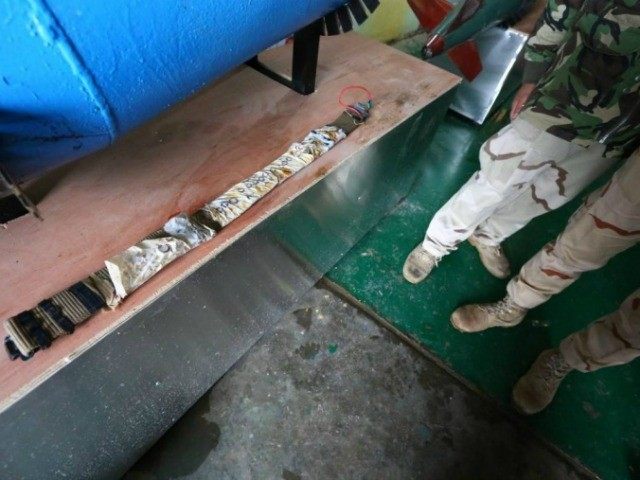Officials have discovered that Islamic State (ISIS/ISIL) jihadis have been using a chemistry laboratory at Mosul University to make bombs used by ISIS jihadists throughout the region.
“The University of Mosul is the best Daesh research center in the world,” Gen. Hatem Magsosi, Iraq’s main explosives officer, told The Wall Street Journal. “Trainees go to Raqqa, [Syria], then to Mosul university to use the existing facilities.”
ISIS hijacked university chemistry lab in Mosul for making bombs: https://t.co/2ca3RMyEbC by @MargaretWSJ @BKesling pic.twitter.com/DkvnrHGxKM
— WSJ Think Tank (@WSJThinkTank) April 1, 2016
They have found “peroxide-based chemical bombs and suicide bomb vests like the ones used in the Brussels attacks and by at least some of the Paris attackers.” The lab also contained “nitrate-based explosives and chemical weapons.”
However, officials told the outlet they do not know how much of the facility remains intact currently. The United States-led coalition bombed the university in March.
Alumni said the university boasted “a strong reputation around Iraq for its science departments.” A year ago, the Islamic State established “a research hub in the chemistry lab.” The terrorist group kept the staff at the university, many who “specialized in organic, industrial and analytical chemistry.”
A raid in Syria in March killed Islamic State’s second-in-command Abd al-Rahman Mustafa al-Qaduli, also known as Haji Imam. He taught physics in Iraq before he joined al-Qaeda in 2004. Officials put him in prison, but released him in 2012. Then he traveled to Syria, where he eventually joined the Islamic State. Gen. Magsosi said the group places Imam as “the top expert at the Mosul bomb lab.”
The sources told the Journal that the Islamic State used one part of the university for explosives and another for suicide bombs.
The Wall Street Journal reports:
During the same time frame, there has been a surge in Islamic State’s use of bombs that mix chemical precursors into an explosive powdery substance known as triacetone triperoxide, or TATP, both in Iraq and Europe.
It isn’t clear how many of these weapons, if any, can be traced to research or training conducted in Mosul.
Gen. Magsosi says that his bomb-detection units called peroxide-based explosives the “Satan Recipe” because they are very hard to detect and they are usually so lethal.
The Islamic State captured Mosul, Iraq’s second largest city, in June 2014. Since then, they have destroyed libraries and buildings at the university. Kurdish outlet Rudaw reported last October that the group destroyed the university’s Faculty of Agriculture buildings.
In December 2014, ISIS raided the Central Library of Mosul to destroy all non-Islamic books.
‘These books promote infidelity and call for disobeying Allah,” announced a militant to the residents. “So they will be burned.”
The library was “the biggest repository of learning the northern Iraqi town.” The terrorists destroyed “Iraq newspapers dating to the early 20th century, maps and books from the Ottoman Empire, and book collections contributed by about 100 of Mosul’s establishment families.”
After that raid, the ISIS militants targeted the library at the University of Mosul. They burned science and culture textbooks in front of the students. According to the Boston Globe:
A University of Mosul history professor, who spoke on condition he not be named because of his fear of the Islamic State, said the extremists started wrecking the collections of other public libraries last month.
He reported particularly heavy damage to the archives of a Sunni Muslim library, the library of the 265-year-old Latin Church and Monastery of the Dominican Fathers, and the Mosul Museum Library with works dating back to 5000 BC.
Citing reports by the locals who live near these libraries, the professor added that the militants used to come during the night and carry the materials in refrigerated trucks with Syria-registered license plates.
Militants also targeted the public library, which was home to more than 8,000 rare books and manuscripts. Elderly residents begged the men not to burn the building.

COMMENTS
Please let us know if you're having issues with commenting.